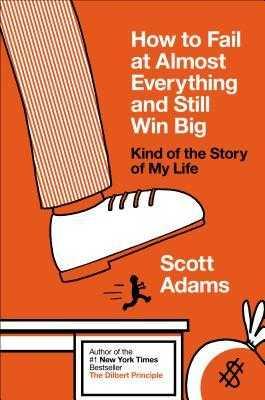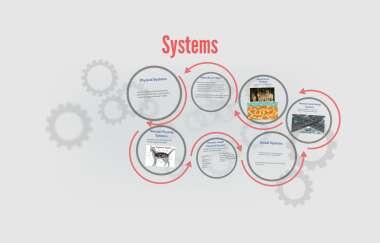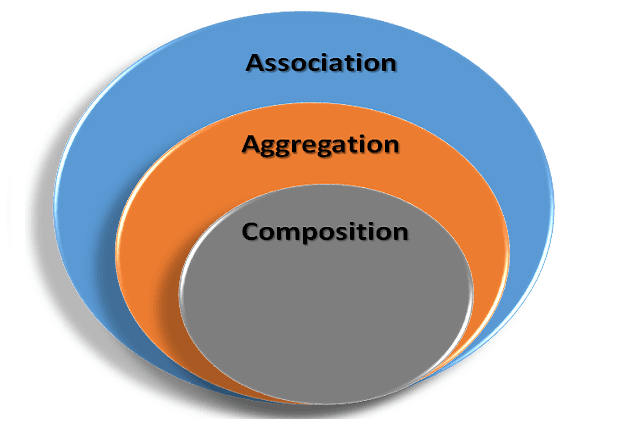K 's Key Ideas from How to Fail at Almost Everything and Still Win Big
by Scott Adams
Ideas, facts & insights covering these topics:
26 ideas
·32.6K reads
139
1
Explore the World's Best Ideas
Join today and uncover 100+ curated journeys from 50+ topics. Unlock access to our mobile app with extensive features.
1. Goals Have Two Major Problems
Self-help gurus have a knack for encouraging people to create and stick to goals. But Adam believes goals are for losers. According to him, the reality is that even the clearest goals have two problems that will always persist:
Goals are future-oriented
Goals can become overly-specific
Firstly, there is the issue that goals are placed in the future, but we have to work in the present to achieve them. This means you are unlikely to see any results from your actions until much further down the line. Most people would find this reality frustrating and discouraging.
285
3.17K reads
The specific nature of goals can also lead to similar frustrations. For example, people often feel like failures if they don’t accomplish exactly what they set out to do. They may still be highly successful, but not meeting their goals leaves them feeling they haven’t accomplished anything. An example of this would be losing weight by a specific date. This goal prevents you from feeling successful during the journey of losing weight and will leave you feeling like a failure if you fall even one pound short by that date.
269
2.36K reads
2. The Effectiveness of Systems
Adams believes that systems are more effective than goals. Systems are firmly grounded in the present. This means they can be grounded in your life right now, and you will get daily pleasure from successfully operating them. Adams describes the time he first learned of the power of systems. He sat on a flight next to a man who explained to Adams how systems had transformed him from an employee to a CEO.
287
2.23K reads
The CEO said he became successful by always looking for a better job. You see, most people wait until they need a job to start looking for one. When they reach their goal of finding a job, they stop. The CEO followed a system by constantly looking for the next promotion, even when he didn’t need it. In the long run, this was a much more effective strategy.
282
2.04K reads
3. Examples of Systems
An exercise system would focus less on an end goal and more on day-by-day improvement. For example, committing to daily exercise. This shows one of the greatest strengths of systems, which is that it helps establish habits.
Adams used systems as a young man to help him achieve the success he now has. He created a system around writing and drawing things people were receptive to rather than having a clear end goal. This meant he did not feel like a failure if it was not successful, which helped him keep going. This continual motivation meant he could create the hit comic strip Dilbert.
277
1.84K reads
4. The Benefits of Being a Generalist
We must understand our talents, but we must also be willing to favor new skills over our talents to become a generalist. The business world was previously obsessed with specialization. Adams points out that general knowledge about several fields is more useful in the modern world. This does not make you mediocre or your average Joe.
Adams explains that he has always been a generalist. When he started Dilbert, he was not a talented writer, artist or businessman. He was just relatively proficient at each skill.
275
1.73K reads
This general competence is what allowed Dilbert to become a success. A wide range of skills like this will help you adapt to the constant changes of the world. That said, Adams notes that not all skills are created equal. There will be some skills that are more relevant within a specific field. So, consider your passion and identify all the relevant skills. Also, think about skills that will be useful in every field, like grammar, vocal techniques and the ability to hold engaging conversations.
263
1.48K reads
5. Specialize in the Areas You Enjoy
As well as developing general skills, you must use introspection to identify your unique skills. Parents and teachers often pressure people to pursue specific careers. You are in the best position to notice your special skills and think about which career would suit those skills. If you are struggling to notice these skills, Adams recommends thinking about what you like to do. It is generally the case that the activities we enjoy the most are the things we are good at.
Suppose this doesn’t help you recognize your unique skills.
270
1.28K reads
In that case, you should consider the areas in your life where you have always been comfortable taking risks. Adams uses an example from his own life to reinforce this point. As a child, he would draw humorous comics in class. Adams knew he could get in trouble if the teacher found out what he was drawing, but Adam was willing to take this risk as he enjoyed it so much.
Once you have found your skills, you have to find a career that matches this skill. This process requires sampling, which means trying many jobs until you find one that is both enjoyable and uses your particular skills.
262
1.13K reads
6. Allocate the Right Tasks to the Right Time of Day
You have likely experienced occasions where you have gone on a run when you have felt drained and unmotivated. These circumstances occur when you adhere to a schedule rather than listening to your bodily rhythms. Adams believes this is an inferior approach and recommends using your energy levels as a metric for allocating tasks. You will feel far more energized and become more efficient if you allocate the right tasks to the right time of day.
272
1.13K reads
7. Allocate the Right Tasks to the Right Location
As well as timings, you should also consider how a location makes you feel and the order of activities. For example, you should avoid working in spaces where you feel relaxed. You can also couple activities which help each other. By identifying the tasks that drain you, you can pair this task with a primary task you find energizing. Adams’ energizing task is blogging, while his draining task is shopping. So, he tries to blog as much as possible and shop as infrequently as possible. If he must shop, he will pair it with a blogging session.
262
990 reads
8. Prioritize Personal Energy
Instead of worrying about which task to prioritize first, you should always make personal energy your priority. This is because personal energy allows you to achieve all your other priorities. Exercise, food and sleep are all essential for looking after your energy levels. So, these should be the first buttons to push to elevate your attitude and raise your energy. Adams recommends experimenting with food to learn which food groups and diets will improve our personal energy levels. This means he also advises against just taking health experts’ knowledge as gospel.
268
959 reads
9. How to Maintain Healthy Eating and an Exercise Routine
Adams also recommends spicing up foods that you know are healthy but find bland. For example, vegetables and grains are clearly healthy. That said, he doesn’t find them tasty when they are by themselves. He uses nutritious additions to make them tempting, e.g., by adding honey, lemon, soy sauce or pepper.
257
1.01K reads
Adams offers similar advice for those struggling to establish an exercise routine. Spice up your exercise by joining a group that meets consistently weekly. This will keep you accountable but will also add an enjoyable social side to your exercise. Adams uses an example from his own life to push this point. His wife plays tennis every Thursday, and because there are only four people in their group, she must turn up; otherwise, they can’t play.
255
903 reads
A final tip for maintaining an exercise routine is to use food or drink as a motivator. We are like dogs. We strive for rewards and try to avoid punishment. So, Adams recommends giving yourself a healthy snack or tiny indulgence as a reward once you have completed a workout. Adams uses an indulgent cup of coffee as his motivator.
254
906 reads
10. Use Association Programming
Moods are infectious, so the moods of those around us heavily influence us. This is called associate energy and means we should always strive to associate ourselves with people we want to be like and people who give us energy. This idea was brought to Adams’ attention when one of his friends decided to live in an affluent neighborhood, as he felt this would push him to become affluent himself. Adams was initially skeptical, but then read a scientific article explaining how spending time with overweight friends can lead to weight gain.
264
838 reads
Adams started implementing the law of associate energy into his life. He worked with three aspiring writers before writing Dilbert. He believes these writers’ energy helped inspire him to write his most famous comic.
Adams still doubts whether associate energy is a physical concept. That said, he does not get why that matters. Many successful people have delusions in their routines that they believe have a positive impact on their performance.
256
810 reads
11. Selfishness is an illusion
Society tells us that selfishness is something we should avoid at all costs, and you should make other people’s desires your priority. Adams challenges this view and points out that there are three kinds of people in this world: stupid, a burden on others, and selfish.
Stupid people are solely interested in satisfying others before themselves. The reason Adams believes they are stupid is that it is impossible to please everyone. So, these individuals end up living an unsatisfactory life.
264
819 reads
Those who are a burden on others are not necessarily a burden because they want to be. These individuals have often been dealt a difficult hand and left to struggle with an illness or something similar. In these situations, you might become a burden, but you should remain selfish to cure yourself.
Finally, selfish people focus on what they want from life. This doesn’t mean they neglect others. They are simply focused on doing what they want, succeeding in life, and then helping others once the first two are accomplished.
263
779 reads
12. Use Affirmations
Adams believes affirmations should be used by all individuals with aspirations for their life. An affirmation is a positive statement about what you want to achieve. You can engage with an affirmation in whatever way you want. Still, the affirmation should be imagining what you want and repeating it several times.
Adams was initially skeptical of affirmations, but he decided to test them after being recommended by a MENSA member. He still agrees affirmations lack scientific evidence, but he has several examples where affirmations have come true.
261
770 reads
Here are four examples of affirmations that came true for Adams:
- “I, Scott, will become rich.” He received two flashes of insight, telling him to invest in two specific stocks. Both these stocks grew like crazy over the next year.
- To date a woman he’d encountered briefly at work. She was out of his league, but they ended up briefly dating.
- To score 94 on the GMAT test. This was the score required to enter MBA programs. He’d only scored 77 previously, but this time he received the exact score of 94.
- “I, Scott Adams, will become a famous cartoonist.” This was the affirmation that changed his life.
255
810 reads
13. The Six Filters for Truth
Adams credits himself with an advanced BS detector based on his experience in the business industry. He believes this detector is based around six filters for truth. The more filters something can pass through, the truer it probably is.
256
926 reads
The Six Filters for Truth are:
- Personal experience: Because human perceptions are iffy.
- Experience of people you know: Because they are even more unreliable.
- Experts: Because they work for money, not truth.
- Scientific studies: Because correlation is not causation.
- Common sense: Because it’s an excellent way to be mistaken with complete confidence.
- Pattern recognition: Because patterns, coincidences, and personal biases look alike.
Combine these filters to refine people’s ideas and understand who is likely telling the truth and who is BSing.
282
975 reads
IDEAS CURATED BY
CURATOR'S NOTE
How to Fail at Almost Everything and Still Win Big is a guide to succeed despite your failures. Adams admits he has failed at more things than anyone he has ever met. But, he managed to transition from working in an office to being the creator of a world-famous comic strip within a few years. The key to this success were fundamental principles that he picked up along the way. This book outlines these principles and how they will benefit you more than what society suggests is best for you and your future.
“
Curious about different takes? Check out our How to Fail at Almost Everything and Still Win Big Summary book page to explore multiple unique summaries written by Deepstash users.
K 's ideas are part of this journey:
Learn more about books with this collection
Effective note-taking techniques
Test-taking strategies
How to create a study schedule
Related collections
Different Perspectives Curated by Others from How to Fail at Almost Everything and Still Win Big
Curious about different takes? Check out our book page to explore multiple unique summaries written by Deepstash curators:
13 ideas
16 ideas
Discover Key Ideas from Books on Similar Topics
11 ideas
Dilbert creator Scott Adams presents his 10 favorite comics of all time
businessinsider.com
7 ideas
Reframe Your Brain
Scott Adams
8 ideas
7 Suggestions for Asking More Powerful Questions
michaelhyatt.com
Read & Learn
20x Faster
without
deepstash
with
deepstash
with
deepstash
Personalized microlearning
—
100+ Learning Journeys
—
Access to 200,000+ ideas
—
Access to the mobile app
—
Unlimited idea saving
—
—
Unlimited history
—
—
Unlimited listening to ideas
—
—
Downloading & offline access
—
—
Supercharge your mind with one idea per day
Enter your email and spend 1 minute every day to learn something new.
I agree to receive email updates








